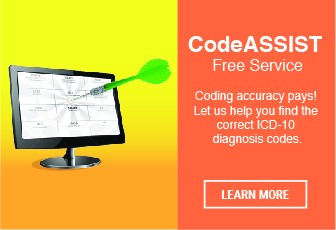- About Us
- Company OverviewLearn more about MEDICAL MUTUAL
- Board of DirectorsCurrent members of the Board
- OfficersCurrent officers of the Company
- Value PropositionThe MEDICAL MUTUAL Difference
- ProducersFind a Producer
- FinancialsView our annual report
- Mutual Advantage PlanA financial reward program
- Notes from the Chair NewsletterImportant information for our Insureds
- Contact UsContact Us for more information

Our financial reward program recognizes your commitment to quality medicine.
Learn More - Coverages

e-dataRESPONSE+ Cyber Liability Coverage provides critical protection in case of a breach.
Learn More - Claims

If you have been contacted by an attorney regarding your care of a patient, read this now
Learn More - Risk Management
- Risk Management OverviewOur risk management philosophy
- Resources/SearchSearch our comprehensive library
- Doctors RX NewsletterOur risk management newsletter
- Education ProgramsRegister for a risk management program
- Security Risk AssessmentEvaluate the security of your practice
- AlertsAlerts issues by medical organizations
- Practice Manager ToolboxAn online resource designed for Practice Managers
- AI Risk ManagementArtificial Intelligence
- Practice Self-Assessment SurveyTake the practice self-assessment survey
- Risk Management FAQCommon Questions about Managing Risk
- Med-RiteLearn more about Med-Rite
- PodcastsListen to risk management podcasts

Our Risk Management education programs provide CME Credits and premium discounts. Register today!
Register - Resources

Browse our comprehensive research library for information on HIPAA, EMR, claims, and much more
Search

Additional Resources - Doctors RX Fall / Winter 2018
The Pitfalls of Portals
Additional Resources
Electronic Patient Portals: Patient and Provider Perceptions
This 2018 article summarizes the results of a study that addresses perceptions about portals from the perspectives of both providers and patients. The four broad themes discussed in the study are: 1) How patients are introduced to portals; 2) Perceived benefits of portals; 3) Perceived barriers to portal use; and, 4) Using portals for patient management of chronic illness. The report provides valuable insights into why patients register for portals but never use them.
This study explores the experiences of Physicians and patients in primary care offices with high rates of patient portal use. The study addresses the perceived benefits and challenges of portal use in general and secure messaging in particular. It discusses inappropriate use of portal messaging and provides recommendations for practices on how to communicate to patients the “rules of engagement” for messaging their provider via a portal.
How to Optimize Patient Portals for Patient Engagement and Meet Meaningful Use Requirements
This brief article from The Office of the National Coordinator for Health Information Technology (ONC) summarizes the benefits of portals, using portal features that encourage and support patient engagement and how to promote and facilitate portal use.
When is the Right Time to Introduce a Patient Portal at Your Practice?
This brief article discusses factors that might influence a practice's decision to introduce a patient portal.
5 Lessons from a Patient Portal Hiatus
This article offers valuable insights on how to make portals an effective tool for interacting with patients, how to evaluate and change portal functionality and why it is best not to aggressively push portal use on patients who prefer other methods of interacting with your office.
How to Make the Most of Your Medical Practice's Patient Portal
This article is for practices that do not yet use a patient portal. The article outlines how to select a portal, how to enroll patients and how the messaging feature of a portal can be a more efficient way for Physicians to interact with patients than phone calls.
This article acknowledges that patient portals have not yet delivered on their promise of improved engagement and outcomes, but predicts that will change in the next decade as portals become more patient-centered. It goes on to discuss new features Physicians and patients can expect in future portals as well as the challenges to implementing better portals. The article predicts that in the future, portals will provide a conduit for sharing data, making it more accessible and allowing patients to take control of their own health care.
This article addresses the topic of patients receiving abnormal laboratory results through a patient portal. It discusses the need to balance the value of patients receiving rapid laboratory results versus the potential harm patients can cause if they misunderstand such results and attempt to self-treat. The article also addresses the need to consider individual patient preferences with regard to how they want to receive bad news.




